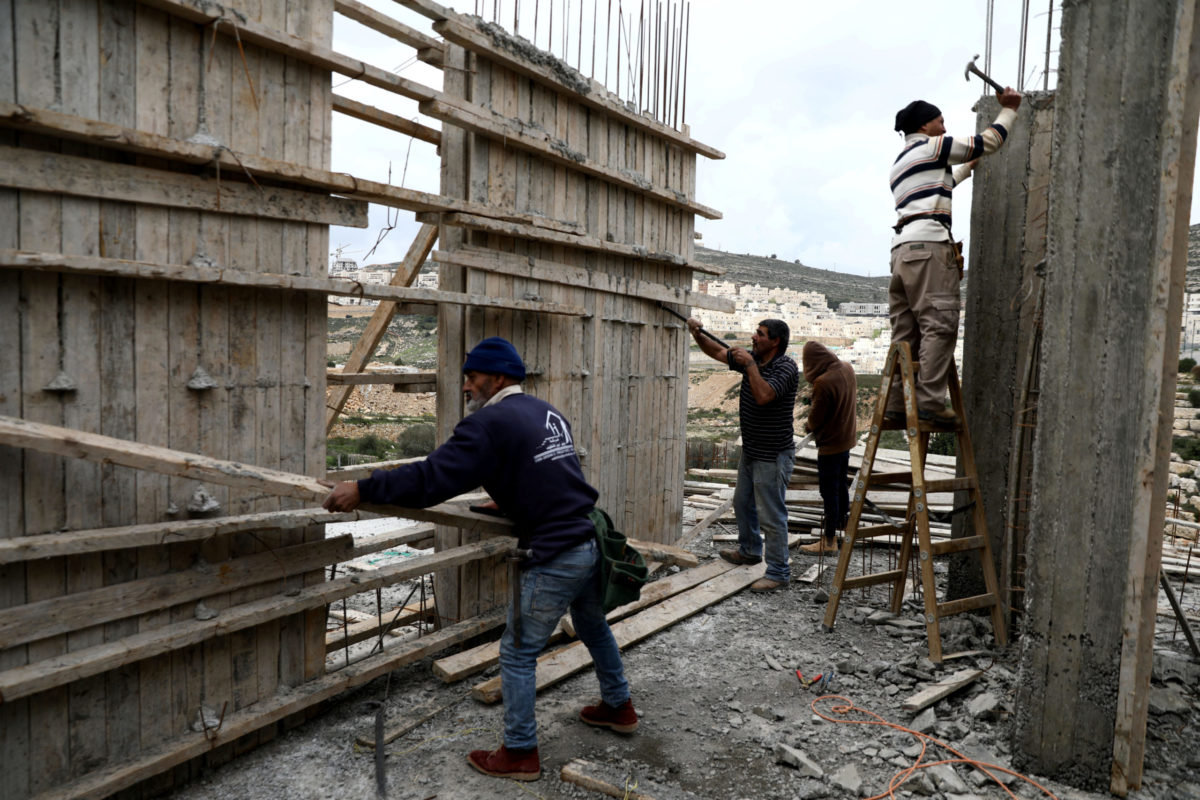Initiative for the Palestinian Economy Construction and Building Materials

The document titled “Initiative for the Palestinian Economy: Construction and Building Materials” discusses the challenges and opportunities within the Palestinian construction sector, particularly focusing on building materials. It outlines the current state of the industry, the impact of political and economic factors, and potential strategies for improvement.
Introduction
The Palestinian construction industry is a crucial component of the economy, significantly contributing to employment and GDP. However, it faces numerous challenges, including restrictions on material imports, political instability, and economic constraints. This report aims to analyze these issues and propose solutions to enhance the sector’s resilience and efficiency.
Current State of the Construction Sector
The construction industry in Palestine has been affected by various factors:
- Political Instability: Ongoing conflict and restrictions imposed by Israeli authorities have severely limited access to essential building materials. This has led to increased costs and project delays.
- Economic Challenges: The Palestinian economy struggles with high unemployment rates and inflation. The construction sector, which relies heavily on imported materials such as cement and steel, is particularly vulnerable to these economic fluctuations.
- Material Shortages: The blockade on Gaza has created significant bottlenecks in the supply chain for construction materials. The report highlights that many projects are stalled due to a lack of essential inputs.
Impact of Building Material Costs
Building materials are a significant cost factor in construction projects. The report identifies several key issues related to material costs:
- High Prices: Despite some reductions in global energy prices, local material costs remain stubbornly high due to limited supply and high demand.
- Dependency on Imports: The Palestinian construction sector is heavily dependent on imported materials, which are subject to price fluctuations based on international markets and local availability.
- Inefficiencies in Supply Chains: The logistics of transporting materials into Palestine are complicated by border restrictions, leading to delays and increased costs.
Strategies for Improvement
To address these challenges, the report suggests several strategies aimed at improving the construction sector:
- Enhancing Local Production: Encouraging local production of building materials could reduce dependency on imports. This includes investing in local manufacturing capabilities for essential materials like cement and bricks.
- Streamlining Import Processes: Simplifying the procedures for importing building materials could help alleviate shortages. This may involve negotiations with Israeli authorities to facilitate smoother access to necessary inputs.
- Investment in Infrastructure: Improving infrastructure related to transportation and logistics can enhance the efficiency of material delivery, reducing costs associated with delays.
- Training and Capacity Building: Investing in training programs for local craftsmen and engineers can improve productivity and quality in construction projects.
Economic Impact
The construction sector plays a vital role in the Palestinian economy:
- Employment Generation: It provides jobs for thousands of Palestinians, making it a critical area for economic development.
- Contribution to GDP: The construction industry significantly contributes to national income, highlighting its importance in economic planning.
- Potential for Growth: With appropriate investment and policy support, there is potential for substantial growth within the sector.
Conclusion
The report emphasizes that while the Palestinian construction industry faces significant challenges due to political and economic factors, there are viable strategies for improvement. By enhancing local production capabilities, streamlining import processes, investing in infrastructure, and focusing on training, Palestine can strengthen its construction sector. Such initiatives will not only help reduce costs but also promote sustainable economic development in the region.In summary, addressing the issues within the Palestinian construction sector requires a multifaceted approach that considers both immediate needs and long-term sustainability. By implementing strategic changes, stakeholders can work towards a more resilient economy that supports growth and development despite ongoing challenges.

Further reading:
The Initiative for the Palestinian Economy – Office of the Quartet quartetoffice
Developments in the economy of the Occupied Palestinian Territory (TD … un
